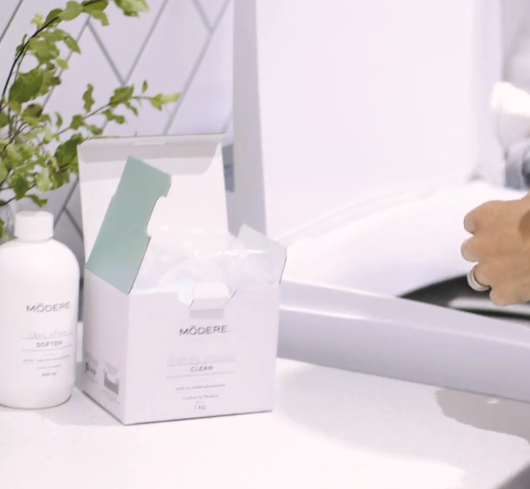You’ve decided to take the leap and try for a baby. Congratulations on this conscious intention! For many, the journey to parenthood is a profound and exhilarating adventure marked by hopes, dreams, and the anticipation of new life. Aspiring parents often find reassurance and empowerment in embracing preconception care—a pivotal phase that lays the groundwork for a healthy and successful pregnancy. This how-to guide will delve into the essential steps to prepare your mind, body, and spirit for the life-changing road ahead. Join us on a journey of holistic well-being as we explore the nurturing aspects of preconception care, including the essential nutrients crucial for the health of both you and your future little one.
Mind: Preparing the Mental Landscape
Embarking on the journey to parenthood necessitates more than physical preparedness—it requires a resilient mental landscape. Stress, so often a constant undercurrent running through every phase of adult life, can disrupt the intricate dance of hormones crucial for conception. When it comes to nurturing fertility, incorporating stress-reducing practices becomes not only a luxury but a necessity. Mindfulness meditation, with its focus on the present moment, and deep breathing exercises, which anchor individuals in moments of stress, serve as potent tools to counteract the physiological effects of stress and enhance emotional well-being.
Open communication with your partner is equally vital. The mental journey towards parenthood can be complex, encompassing excitement, anxiety, and unforeseen challenges. Creating a supportive environment where both partners can openly express hopes, fears, and expectations fosters emotional well-being. Furthermore, maintaining a healthy work-life balance is an act of self-care that resonates beyond the workplace, contributing to an environment where emotional wellness can flourish. When you embrace these multidimensions of preconception care, you’ll not only enhance fertility but also lay the foundation for a more harmonious and fulfilling journey into parenthood.
Body: Key Nutrients for Physical Vitality
Ensuring your body is well-nourished is a cornerstone of preconception care, laying the groundwork for a healthy pregnancy. Key nutrients are not just a dietary consideration; they’re an investment in the vitality of both you and your future child.
- Folic Acid: Folic acid is at the forefront of essential nutrients, a paramount factor in neural tube development. To optimise its benefits, it’s recommended to commence folic acid supplementation at least one month before conception. This nutrient, found in leafy greens, legumes, and fortified grains, plays a pivotal role in preventing neural tube defects, emphasising its critical role in the early stages of pregnancy.
- Iron: As the body prepares for the increased blood volume during pregnancy, iron becomes a vital player in preventing anaemia. Incorporating iron-rich foods such as lean meats, beans, and leafy greens into your daily diet ensures the body is equipped to meet pregnancy demands, supporting maternal and foetal well-being.
- Calcium: Essential for the developing bones of the foetus, calcium is a non-negotiable nutrient in preconception care. While dairy products are a traditional source, fortified plant-based milks and leafy greens provide excellent alternatives for those with dietary preferences or restrictions.
- Omega-3 Fatty Acids: The cognitive and visual development of the foetus is bolstered by the inclusion of omega-3 fatty acids in the preconception diet. Incorporating fatty fish, flaxseeds, and walnuts into your meals ensures an adequate supply of these essential fatty acids, helping to ensure the future cognitive health of your child.
- Vitamin D: Crucial for bone health, vitamin D is a nutrient that can be obtained through both sun exposure and specific dietary choices. Fortified foods like dairy and cereals contribute to maintaining optimal vitamin D levels, supporting not only your bone health but also the skeletal development of the growing foetus.
- Iodine: Often overlooked but of paramount importance, iodine is a key player in the development of the baby’s brain and nervous system. Dietary sources such as seafood, dairy, and iodised salt offer accessible ways to incorporate this vital nutrient into your preconception diet.
As you focus on these key nutrients, you’re not just nourishing your body; you’re creating an environment conducive to the optimal development of your future child.
Spirit: Cultivating Emotional Wellness
The spiritual dimension of preconception care transcends the physical and the mental, reaching into the realm of purpose and connection. A deeply nurtured spirit becomes a compass guiding you through the transformative journey to parenthood. It involves engaging in activities that evoke joy and fulfilment, reminding you of the profound purpose behind your quest for parenthood. Spending time in nature, with its calming and grounding effects, can be a deep spiritual practice that aligns your energies with the natural world.
Practising gratitude is another gateway to spiritual well-being. Take moments each day to reflect on the blessings in your life, and you’ll foster a positive outlook and create a harmonious inner environment. Gratitude serves as a reminder of the abundance that surrounds you, creating a spiritual space where hope and optimism can flourish. Whether through nature, gratitude, or creative pursuits, fostering a positive and purposeful spirit is not just a component of preconception care—it’s an investment in the emotional wellbeing that can accompany and sustain you throughout your parenthood journey.
Creating a Preconception Wellness Plan: A Step-by-Step Guide
1. Consult with Healthcare Providers:
Schedule preconception check-ups with both your primary care physician and a gynecologist. Discuss your family medical history, current health status, and any medications you are taking.
2. Adopt a Balanced Diet:
Focus on a nutrient-rich diet with various fruits, vegetables, whole grains, lean proteins, and dairy or dairy alternatives. Avoid excessive caffeine and alcohol consumption.
3. Supplement Wisely:
Begin taking a prenatal vitamin with folic acid. Depending on your specific needs, your healthcare provider may recommend additional supplements, such as iron or omega-3 fatty acids.
4. Establish Regular Exercise:
Engage in regular moderate physical activity. This can include activities like walking, swimming, or yoga. Consult your healthcare provider before starting any new exercise regimen.
5. Manage stress:
Incorporate stress-reducing practices into your daily routine. This can include mindfulness meditation, journaling, or engaging in activities that bring joy and relaxation.
6. Create a Support System:
Share your preconception journey with your partner, friends, or family. Establishing a support system can provide encouragement, understanding, and shared experiences.
7. Track Menstrual Cycle:
Understanding your menstrual cycle can aid in identifying your most fertile days for conception. Consider using ovulation predictor kits or fertility apps to track your cycle.
8. Assess Environmental Exposures:
Identify and minimise exposure to environmental toxins. This may include evaluating workplace hazards or potential toxins in your living environment.
A Holistic Approach to Preconception Care
The path to parenthood is a monumental and joyous time, and well-planned preconception care can help guide a healthy and prosperous journey. Nurturing your mind, body, and spirit lays the foundation for a thriving pregnancy and the well-being of your future child. By focusing on key nutrients, adopting a holistic approach, and following a step-by-step guide, you are not only preparing for conception but also cultivating a legacy of wellbeing and happiness for generations to come. As you embrace this transformative phase, may your journey be filled with love, positivity, and the promise of new life.*
*When you become pregnant, your nutritional requirements undergo significant changes to support both your well-being and the developing baby. It’s crucial to prioritise your health during this transformative period and seek guidance from healthcare professionals for personalised advice on nutrition and supplementation to ensure a healthy pregnancy journey.
To learn more about women’s health:
-
EMBRACE THE NEW YEAR, EMBRACE THE NEW YOU: MODERE’S TRANSFORMATIVE JOURNEY FOR #EVERYWOMAN
-
BREAKING THE STIGMA AROUND WOMAN’S HEALTH: REDEFINING WELLNESS FOR WOMAN










